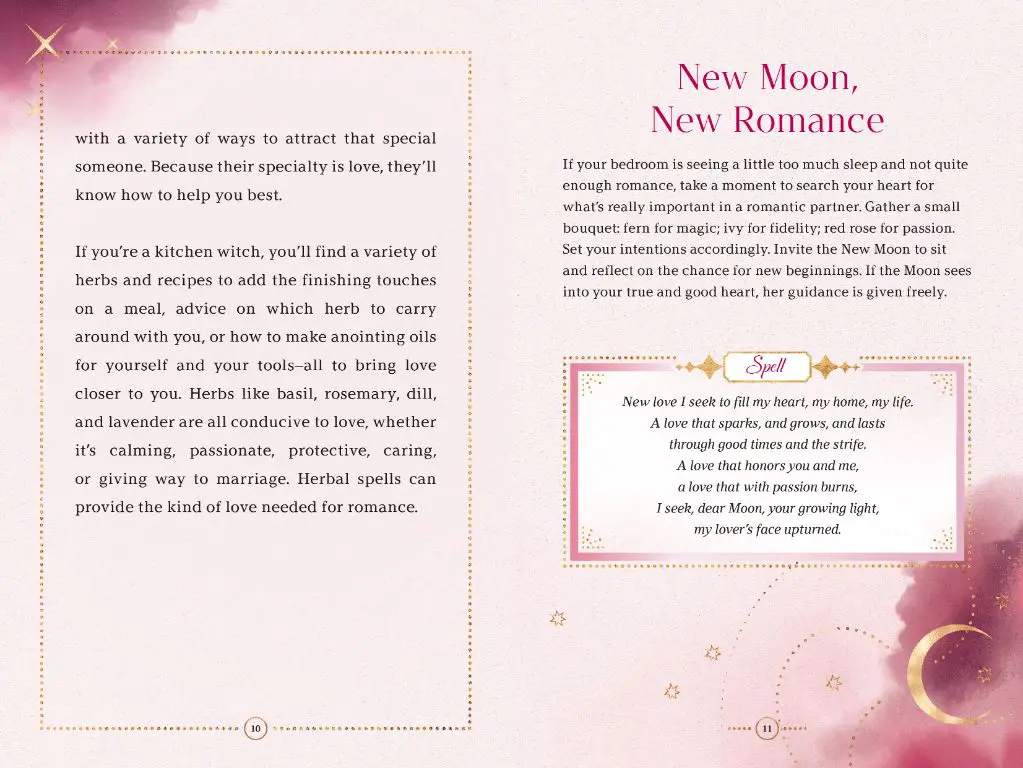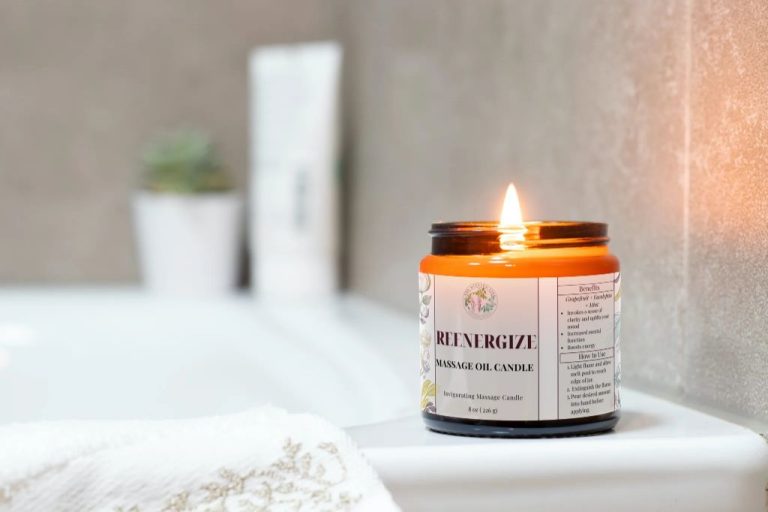Does Pure Seduction And Love Spell Smell The Same?
Defining Love Spells and Seduction
Love spells are rituals, incantations, or actions intended to magically influence someone’s feelings of love or attraction towards another person (Wikipedia). The goal of love spells is to awaken feelings of affection, passion, romance or sexual desire in the targeted person. Methods involve casting rituals, burning candles, crafting charms or amulets, mixing potions, or reciting incantations. For example, writing the person’s name on a piece of paper, folding it, and keeping it under your pillow or in a special box are common folk magic love spells. Seduction, on the other hand, involves enticing someone into a romantic or sexual relationship through charm, persuasion, or attraction. The methods of seduction include flirtation, strategic touch, intimate conversation, and emphasizing desirable traits. For example, giving thoughtful compliments, presenting an alluring personal appearance, and establishing meaningful rapport.
The Psychology Behind Both
Many people who use love spells or seduction techniques are driven by a desire for love, connection, and intimacy, stemming from unmet psychological needs like loneliness or low self-esteem. At their core, both love spells and seduction represent an attempt to fulfill our human need for companionship and belonging.
However, the motivations can differ in that seduction may stem more from sexual or ego-driven desires, while love spells often reflect romantic motivations. As psychologist Jessa Zimmerman explains on TikTok, spells attempt to “create a deep soulmate connection,” while seduction is about “physical attraction and arousal.”
There are ethical concerns with both practices if consent and free will are not respected. As Zimmerman states, “any magic to force someone’s decision is unethical” (source). Seduction can also be unethical if manipulative or coercive techniques are used. The healthiest relationships are built on mutual care, trust and free choice.
Evaluating the Success Rates
According to a Quora thread, there is much debate around the success rates of love spells. Some claim very high success, while others argue they rarely if ever work. Part of the challenge is defining what constitutes “success” – is it simply sparking interest and attraction, or does it require a long-term relationship to form? There are also many different love spell methods, so success likely varies.
In contrast, seduction techniques tend to have more consistent, measurable results. Seduction focuses on triggering biological attraction cues, demonstrating value, and building connection. Research shows straightforward tactics like displaying wealth and status, acting confident, making eye contact, and smiling more often objectively increase seductive success.
However, some argue that the ethics of evaluating love spells’ “success rates” are questionable. These spells intend to manipulate emotions and violate consent, so critics contend that any level of success enables unethical behavior. Responsible magic practitioners thus aim to attract love through self-improvement, not control of others.
Methods and Ingredients
There are various methods used in casting love spells and attempting seduction. Common ingredients in love potions include herbs like rose, cinnamon, and vanilla, as well as bodily fluids, flowers, candles, and crystals. Seduction may involve ingredients like perfumes, clothing, words of flattery, and body language.
Love spells often incorporate ritualized practices like chanting incantations, burning candles or herbs, mixing potions, and focusing intention on the desired target. Seduction uses more psychological tactics like evoking desire through sensual language, flirtatious looks, and building intimacy. Both attempt to emotionally and physically attract another person.
While love spells supposedly work through supernatural means, seduction relies on natural charm and chemistry between people. The methods can be similar in preparing alluring fragrances, appearances, and environments, but love spells claim to metaphysically influence emotions while seduction aims to naturally win someone over.
Ultimately, love spells allegedly control attraction against someone’s will through mystical forces. Seduction follows social norms of dating, using mutual desire and free will to develop relationships. The ethics are therefore questionable regarding love spells that subvert consent, contrasting the mutually consensual nature of seduction.

Impacts on the Target
Love spells are specifically intended to override a target’s free will and autonomy in order to force them to become infatuated and obsessed with the spell caster. The goal is to compel the target to fall intensely and artificially in love, often without any genuine foundation for a relationship (Source 1). This non-consensual manipulation can leave the target feeling confused, anxious, depressed or violated when unable to resist the spell’s effects. Love spells seek to create an extreme imbalance of power and control in the relationship dynamic.
In contrast, seduction aims to attract interest and heighten desire through charming speech and flirtatious body language. The intent is mutual attraction and willing participation by both parties. Seduction focuses on detecting and amplifying a target’s existing romantic or sexual interest. While manipulation can still occur, the goal is increased intimacy through free will rather than forced obsession. Ultimately, seduction seeks a consensual relationship, while love spells impose an unbalanced, unethical dynamic on an unwilling target (Source 2).
Cultural Representations
Love spells and seduction have a long history of portrayals in media and popular culture. One of the earliest examples is the legend of Tristan and Isolde, where a love potion causes the two to fall madly in love. This trope continued through the middle ages and Renaissance with plays like Shakespeare’s A Midsummer Night’s Dream, which revolves around magical love potions leading to comedic mix-ups.
In more modern media, love spells and potions are often depicted as dangerous, chaotic, or unethical. Films like the comedy Love Potion No. 9 and the horror movie Jennifer’s Body portray love spells gone awry. However, some films like Practical Magic put a more nuanced spin on love spells – the characters use them, but face consequences.
As attitudes have evolved, love spells are often seen as manipulative and damaging in popular media. Series like True Blood, The Vampire Diaries, and Charmed showcase supernatural characters using mind control and magic to coerce relationships. This highlights the deeper issues of consent and autonomy.
Despite the frequent presence of love spells in media, public perception of their use in real life is decidedly more negative. Most now view the idea of magically inducing love or attraction as unethical. But the trope endures in entertainment, reminding us to be critical of those who try to manufacture or manipulate love.
Ethical Considerations
There are important ethical issues to consider around the use of love spells and seduction techniques, particularly around consent. According to an article on Dazed Digital, casting love spells on someone without their consent raises concerns about infringing on their free will and autonomy (source). Attempting to control or manipulate others’ emotions and behaviors through magical means is considered unethical by many modern witchcraft practitioners.
Similarly, some seduction techniques have the potential for abuse if used without regard for consent. As discussed in an academic article, erotic love spells often compel the target into unwanted relationships, going against principles of consent and sexual ethics (source). Ethicists argue that any attempts at seduction or persuasion should allow for the target’s voluntary choice.
Modern perspectives on love spells and seduction emphasize respect, consent, and free will. Genuine romantic attraction is seen to arise organically through ethical means, not from coercion or controlling behaviors. Instead of love spells, many witches today focus on self-love rituals and attraction magick directed inward. Ultimately, ethical questions surround any attempts to impose one’s will on others without their consent.
Legal Status
Laws regarding the use of love spells vary widely, though most places have restrictions in place. For example, in the United States, love spells are not illegal per se but may be considered a form of harassment or stalking if they cause significant distress. Cases involving “magical coercion” have sometimes been brought under stalking or restraining order laws.
Seduction laws also aim to prevent manipulation, though they are infrequently used today. Historically, a civil suit of seduction could be brought against someone for a broken promise of marriage after intercourse. However, most states have abolished civil seduction statutes, considering them outdated.
There are challenges to enforcing laws around love spells and seduction. Claims of metaphysical manipulation are hard to prove, and many incidents go unreported out of embarrassment or fear of not being believed. Law enforcement tends to focus only on clear cases of harassment, threats, or exploitation.
Overall, while legal restrictions exist, practical enforcement of love spell or seduction laws remains difficult. Authorities tend to intervene only when malicious actions cause quantifiable harm.
Expert Opinions
Dr. Robert Epstein, a senior research psychologist at the American Institute for Behavioral Research and Technology, was quoted saying “Love spells prey on vulnerable people and should be avoided.” He explained that “There is no scientific evidence that love spells work, and attempting to manipulate someone’s emotions in this way raises serious ethical concerns.”
Ethicist Grace Helbig from Princeton University said in an interview, “Love spells inherently undermine consent and should be avoided on ethical grounds.” She elaborated that “Exerting mystical influence over another person’s emotions completely disregards their autonomy and ability to make decisions for themselves.”
Clinical psychologist Dr. John Grohol stated, “Love spells promote an unhealthy attachment style and feelings of codependency.” He cautioned that “Trying to force a relationship through mystical means often leads to greater unhappiness in the long run for both parties involved.”
Conclusions
In summary, while love spells and seduction share some similarities in their psychological motivations and chemical effects, they differ significantly in their methods, intentions, and outcomes. Seduction aims to attract someone using natural charm and persuasion, while love spells rely on ritualistic practices and mystical forces to control emotions and bind someone against their will. Despite conflicting perspectives on their effectiveness and ethics, most experts agree neither should be used for manipulative purposes, and open communication remains the healthiest path to genuine relationships.
Readers should treat the notions of “love spells” with skepticism, and focus efforts on self-development, empathy, and honest connections. True love manifests from caring deeply about someone’s wellbeing, not controlling or tricking them. However, the placebo effect of rituals and potions reminds us our minds and hormones play powerful roles in attraction. Seduction involves artfully activating desire, while respecting consent and boundaries. Understanding these principles allows us to pursue romance in ethical ways, without resorting to manipulation.



